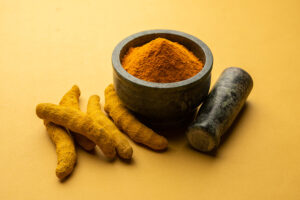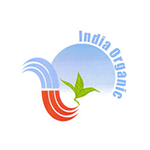

India Today Insight | Dailyhunt
In one of Sachin Lanjekar’s sprawling mango orchards, spread over a total of 80 acres in Ratnagiri in Maharashtra’s Konkan region, monkeys screech intermittently from trees as four men go about picking ripe fruits in baskets. As the sun sets, leopards on the prowl feast on semi-ripe mangoes that have fallen on the ground. This is peak mango harvest season, but no one comes here for days to pluck the Alphonso, proudly called the ‘King of Mangoes’ in this part of the state. In Vengurla town, some 200 km away, ripe mangoes have fallen off trees in Raman Waingankar’s orchard and are rotting. Waingankar has stopped going to the orchard to pluck the fruit because, he says, there are no buyers. The local market, otherwise packed with vendors selling Alphonso and other mango varieties, such as Payari and Rayval, is deserted. This is lockdown time. “It’s better to leave the mangoes on trees and save the packaging and transportation costs. We do not have enough labour due to the lockdown, and local authorities, too, do not allow us to step out and sell. Traders in Mumbai deny us a just price for our produce,” laments Waingankar, a third-generation mango farmer.
Over the past decade, Maharashtra has been producing an average 550 metric tonnes of mango annually, predominantly Alphonso and Kesar. The state has approximately 25,000 growers of the fruit. According to the National Mango Database, the state has approximately 1.6 lakh hectares under mango cultivation, with the Alphonso orchards concentrated in Ratnagiri and nearby Devgad and Kesar farms in Marathwada. The Agricultural and Processed Food Products Export Development Authority, a Union commerce and industry ministry body, says the state’s mango yield in 2018-19 was 566 metric tonnes and 791 metric tonnes in 2019-20.
This year, though, the yield is expected to be far less. Vikas Patil, joint director of agriculture, Maharashtra, estimates a 30 per cent drop in yield because of a short winter and a wet November last year. Climatic disturbances have indeed played a part in the gradual decline of the mango crop in the state over the past decade. For instance, unseasonal rains last November and December destroyed the budding mango flowers. “Mango flowers bloom when temperatures drop, but last year, we didn’t get any winter. So the flowering itself has been low this season,” says Laxmikant Khobrekar, an engineer who owns a one-acre mango orchard, with 60 trees, in Malvan, some 140 km from Ratnagiri. While he estimates this year’s losses at 50 per cent, Waingankar says his yield has crashed to about 16 per cent. Compounding the problem is the nature of the Alphonso tree, which usually sees fruiting every alternate year.
In Konkan, March to May are busy and prosperous months for mango growers as the high-in-demand Alphonso is lapped up by traders in Mumbai’s APMC (Agricultural Produce Market Committee) and tourists and buyers who visit Konkan. The first round of Alphonso hits the market in March, selling at Rs 1,500-2,000 for a dozen. Early March this year was no different, but prices slumped to as low as Rs 300 a dozen within less than a fortnight as the nationwide lockdown came into effect. Amol Teli, who owns 5,000 Alphonso trees in the villages of Devgad, says 20 per cent of the harvest is done in March, 30 per cent in April and the remaining in May. The first two rounds, he says, have borne the brunt of the lockdown, which shut down large markets.
Restrictions on local movement, too, have affected the harvest. Lanjekar’s orchards are spread over a radius of 50 km across villages and towns of Ratnagiri, and the migrant labourers from Nepal who work here are unable to travel to the farms. “Due to the lockdown restrictions in place, not more than four people can be in public at a time together. For us, transporting workers in jeeps in batches of four every day turns out to be very expensive. We would rather not pluck the fruit,” he says. Eighty per cent of Lanjekar’s harvest is pending.
Waingankar says that contrary to popular perception, mango farming has been steadily becoming less lucrative. The reasons include unseasonal rain, high incidence of pests and harassment at the APMCs, where traders try to exploit growers over rates and strikes by workers delay the offloading of mango cartons. “We spend money to maintain the orchards round the year, but suffer losses as mango trees are prone to catching diseases fast,” he says. “This year, some of us are getting as little as Rs 100 per dozen mangoes, which is not even one-fourth of the usual rate.”
Some growers claim that while it costs an average of Rs 70,000 to maintain an acre of mango orchard, the income from it has plummeted to about Rs 10,000. “Earlier, our input cost would be around Rs 25,000 and the income up to Rs 1 lakh,” says Khobrekar. Every year, a few trees develop disease, further bringing down the yield, he adds.
With both exports and domestic sales hit, mango growers are staring at big losses. Dr Ganesh Hingmire, an agri-economist based in Pune, estimates Maharashtra’s total mango turnover to be approximately Rs 3,500 crore. The Alphonso fruit from Konkan accounts for a lion’s share of this. The turnover of a single taluka in Konkan’s mango belt is Rs 150-250 crore. While the harvest season will go on for another month, some farmers are putting the total losses to mango trade due to the lockdown at 50 per cent.
Exports to the main markets of West Asia, Japan, UK and US have been hit by the lockdown. Bhooshan Nabar, who sends 5,000 dozens of Alphonso mangoes to the US from his 40-acre orchard in Math village of Vengurla, says he hasn’t exported any this year. “Approximately 900,000 dozen mangoes go from Konkan to the major markets every day. Of the total that is sent to Mumbai’s APMC, 20 per cent is exported. But this time, most countries of export are in lockdown,” he says.
Mumbai’s APMC sources almost 90 per cent of its mangoes from Konkan. But with the market closed for several days since the lockdown was announced, farmers have been exploring direct-to-home marketing-taking their produce straight to the consumers. They are getting help in this from the state agriculture department and local politicians. Farmers collect orders of at least 100 cartons and send a tempo-load of Alphonso mangoes to housing societies in Mumbai, Navi Mumbai, Thane, Kolhapur, Sangli and Belgaum. “When the markets shut down, there was nobody to buy our produce. Mangoes are highly perishable and start ripening within five days of plucking,” says Teli.
Officials affirm that the direct-to-home concept has somewhat helped salvage mango farmers’ incomes. “The model is working very well for farmers because they are getting a minimum of Rs 350 per dozen, much higher than what traders pay. More than 1,500 cartons of five dozen mangoes each have already been sold through this method,” says Patil.
Local politicians have also stepped in to help farmers forge tie-ups with retail chains, such as Big Bazaar, and agribusiness entities like Merakisan. On April 19, 200 dozen Alphonso mangoes went from Teli’s Ravimangal Aamrai farm to Pune for supply to Merakisan. A few hundred dozen go from Devgad to Big Bazaar stores in Mumbai every week.
A poor winter and the lockdown have had a devastating impact on Maharashtra’s mango cultivation, but with the direct-to-home-sale option cutting middlemen and traders out and ensuring buyers for their produce, several smaller farmers are already considering it their business model for the future. “It ensures a fair price for both the farmer and the end-customer,” says Patil.
India Today Insight | Dailyhunt

USDA (USA)

GI Certified

India Organic


Copyright © 2025. All rights reserved by Aamrai Organic
WhatsApp us
Share your details to receive an exclusive discount on the first batch of premium Malawi Mangoes this season. Don’t miss out on the taste of true luxury!